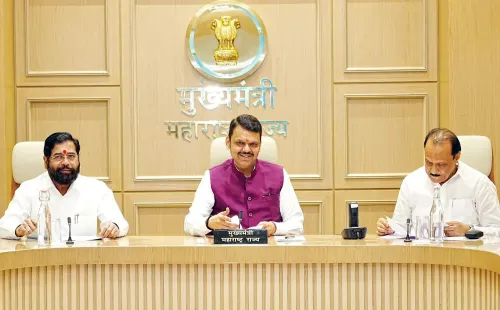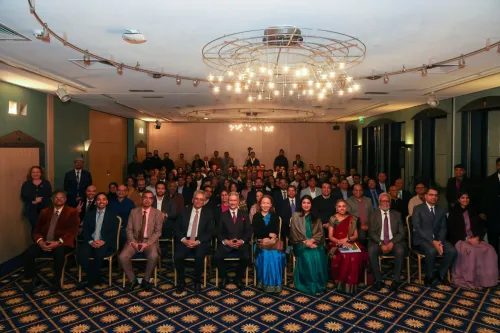Karnataka: Congress Legislator Highlights Growing Liquor Sales in Rural Ration Shops

Synopsis
Key Takeaways
- Illegal liquor sales in rural areas are a serious concern.
- Government urged to take action to stop these sales.
- Increased alcohol addiction among students reported.
- Accidents and fatalities linked to alcohol consumption are rising.
- Legislators debate solutions and the effectiveness of existing laws.
Bengaluru, March 4 (NationPress) Congress MLA Mahantesh Koujalagi stated on Tuesday that the illegal liquor sales in ration shops across rural areas have escalated into a significant issue. He pressed the Congress-led government on what measures have been implemented to tackle this situation.
During a heated discussion, Speaker U.T. Khader urged the government to alleviate the pressures of sales targets imposed on liquor license holders throughout the state.
MLA Mahantesh brought this matter up during the Legislative Assembly session on Tuesday in the Zero Hour segment. He expressed, “In rural regions, the unlawful sale of liquor is widespread. Consequently, students in these areas are becoming addicted to alcohol. Whenever we visit villages, mothers implore us to halt the liquor sales at ration shops and other small vendors.”
“The number of accidents has surged, resulting in an increase in deaths among young individuals. The government must eradicate the illegal sale of liquor in small village outlets. The current laws are adequate to tackle this problem, and we can mitigate this menace,” he insisted.
JD(S) MLA and floor leader C.B. Suresh Babu added that liquor license holders face sales targets, compelling them to resort to all possible tactics to sell alcohol.
“They deliver liquor bottles on bikes to villages and even bring them to agricultural fields for laborers,” he alleged.
Former Home Minister and BJP MLA Araga Jnanendra commented that the government should legalize liquor sales in all ration shops to boost revenue. Speaker U.T. Khader interjected, asking him to offer constructive recommendations rather than complicating the matter.
Araga Jnanendra further claimed, “Liquor bottles are illegally distributed to shops near SC-ST colonies in my constituency. In those areas, men aged between 35 and 40 are rarely found alive due to alcohol dependency.”
Senior Congress MLA S.N. Narayanaswamy from Bangarpet in Kolar district angrily retorted, questioning why Araga Jnanendra was targeting SC-ST communities.
“Are there no alcoholics in other communities? Don’t others consume alcohol? Will you pledge against drinking?” he challenged.
Speaker U.T. Khader advised that the Excise Minister gather data from all MLAs regarding locations of illegal liquor sales and take stringent action, emphasizing the severity of the issue.
Minister for Excise R.B. Thimmapura responded that over 3,000 cases have been initiated in the Belagavi division alone. The department is holding village-level meetings and has circulated directives for officers to take strict measures.
Additionally, a coordination committee consisting of the Excise Deputy Commissioner and other officials is actively working to combat illegal sales. Awareness initiatives are also being held in schools and villages, he added.
At this point, Deputy Chief Minister D.K. Shivakumar intervened, highlighting that the House was discussing the Governor’s address. He challenged the former Home Minister to reveal how many illegal liquor shops were closed during his tenure before further deliberating on the issue.
Speaker Khader wrapped up the discussion by advising the Excise Minister to reassess and lower sales targets to avert undesirable outcomes.










